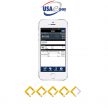
Why You Should Never Pay Your Taxes With A Credit Card
There are some obvious advantages to paying your taxes by credit card: it gives you longer to pay, you can possibly qualify for rewards, and the IRS has made it easier to make credit card payments. However, this isn’t the best option for settling your tax bills as the disadvantages far outweigh any benefits.
If you’re considering paying your next tax bill by credit card, here are some of the reasons not to.
Credit Card Payments Come with Added Costs
One of the most obvious reasons not to pay by credit card is the added costs involved. Currently, there are three separate companies that process payments on the behalf of the IRS, and each of these options attracts a fee, although it can sometimes be tax deductible.
When paying by credit card, you could be charged anything from 1.87-2.00 percent of the total on top of your original tax bill and the charges are set as follows:
- PayUSAtax.com 1.98 percent and a minimum fee of $2.69.
- OfficialPayments.Com 2.00 percent and a minimum fee of $2.00.
- Pay1040.com 1.87 percent and a minimum fee of $2.59.
And the additional costs don’t stop there. As well as paying service fees, credit card interest rates can also add a considerable amount to the total. At the time of writing, the top credit cards have an average interest rate of anything from 13.12 percent for business credit cards to 22.99 percent for cash back credit cards.
If you own a limited amount, the interest rates won’t add too much to your bill. However, for larger tax payments, you’d pay a considerable amount in interest alone.
Can Cause Damage to Your Credit Record
Large debt on credit card could lead to you being perceived as a risk by your credit card company. What are the consequences of this? You might end up paying even more interest or have a reduced credit limit forced on you.
Another consideration is the damage such a large credit card balance could make to your credit score, at least in the short term. As Experian explains, credit scores are updated regularly, and if you owe a lot on your credit card at any one time, this will be reflected in your most recent score.
A credit score can affect the interest you pay on other loans you take out, and it can have further damaging consequences too. For instance, a poor credit score could make it difficult to find a place to rent or your ability to get a mortgage if you decide to move.
Other Potential Problems
Another disadvantage of credit card payments is the credit card limits that are put in place; this could cause problems if your IRS payment pushes you to the limit. For instance, should an emergency occur, or you want to use your credit card for any other reason, you’ll be left without your credit card as a line of credit.
In addition, as the IRS website states, you can’t always cancel a credit card payment, either.
Does Paying Your Tax Bill by Credit Card Ever Make Sense?
There are some circumstances where it might be considered sensible to pay your tax bill on a credit card, such as when the rewards outweigh the risks. As an example, if you’ll get a bigger return than what you’ll pay out in interest, but it’s widely accepted that this isn’t a chance worth taking.
If you qualify for a 0 percent credit card and pay interest free over a longer period, at least you wouldn’t have to pay added interest. However, you’ll still incur added costs from convenience and processing fees. You also need to think about whether you’d want a large credit card balance on your credit record, or what you would do if you suddenly couldn’t make the monthly payments for any reason.
In addition, if you are transferring the balance from another credit card, this can also impact on your credit score and make it more difficult to get credit in the future.
So, even when paying with a credit card might seem like a good idea, you can see the obvious disadvantages of doing this.
Different Ways to Settle Your Tax Bill
What are the best ways to settle your bill? The IRS accepts credit/debit cards, checks, money orders, cash, wire transfers, electronic funds withdrawal and payments via the Electronic Federal Payments System. However, most these payment methods depend on you having enough money in your bank account to settle the bill outright, and some of the ways of paying having disadvantages, such as:
- Checks can possibly be tampered with, if you’re not paying the check in directly, they can go missing in the post, payments take longer to clear and then there’s the delay caused by sending a check in the post.
- Debit cards incur a fee, although this is charged at a flat rate.
The IRS also offers an installment plan for paying off your tax bill, however, this is subject to additional fees; a regular installment agreement fee of $225 applies, and you have to meet the requirements before you can qualify for this option.
Conclusion
Although it can be tempting to use a credit card to settle your tax bill, doing this has the potential to cause some significant negatives. For instance, you could find that your credit score is comprised and you’ll pay extra in interest rates and processing fees.
Also, there is always a chance that you might not be able to make an installment for some reason, which would add further fees, and penalties, which are charged at 5 percent every month.
The IRS offers several payment options aside from credit/debit cards such as mobile payments through its mobile app, and direct payments. However, these all require you to have an existing balance if you’re going to cover the bill in full, which means planning ahead and looking at tax saving strategies so you’re always ready to pay your bill.
Ready to get started?
Get in touch or create an account





